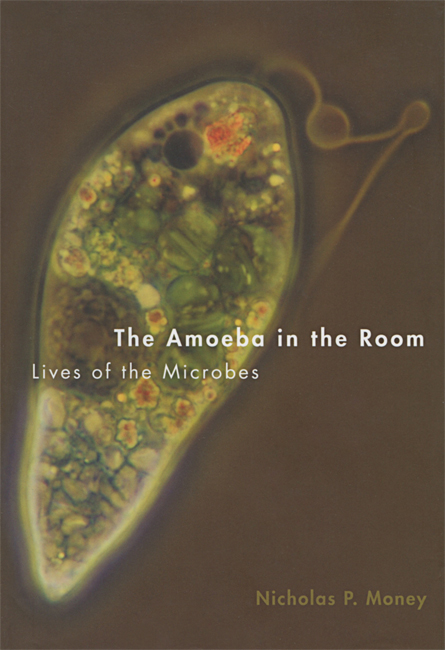- More than 2 years ago
 The Amoeba in the Room: Lives of the Microbes
The Amoeba in the Room: Lives of the Microbes
Nicholas P. Money
Oxford Univ., $24.95
Prochlorococcus is a little bacterium with a big job. Less than a micrometer in diameter, it’s the most abundant photosynthetic organism on Earth, taking up carbon dioxide and releasing oxygen. If the octillion — that’s a 1 followed by 27 zeros — or more Prochlorococcus currently adrift in the world’s oceans were to disappear, writes mycologist Nicholas Money, air-breathing animals would suffocate.
For far too long, Money argues, biology textbooks have focused on life that’s visible to the naked eye. But the soil, seas and air abound with tiny living things that cycle nutrients and form the base of a food web supporting more familiar life-forms. Even the human gut teems with unseen hitchhikers. Money’s book offers a glimpse into the lives of these often overlooked bacteria, fungi, amoebas and other microbes.
And what dramatic lives they lead. Money recounts brutal struggles between predator and prey, unusual methods of reproduction and seemingly unlikely alliances forged between species, all playing out under the microscope.
The cast is colorful, too, from armored amoebas to bacteria that withstand blasts of radiation more than a thousand times the dose that would kill a human. One interesting oddball is the dog lichen, a leafy-looking organism that’s actually a three-way team-up between an alga, a bacterium and a fungus, all working together to ensure mutual survival.
Microbes are rarely allotted cute and easy-to-remember common names, so keeping up with the terminology in the book can be a mental workout. Money’s light-hearted writing helps prevent the lingo from becoming overwhelming, though, and readers who can weather the tricky language will find a fascinating and strange new world.
Buy this book from Amazon.com in hardcover or for Kindle. Sales generated through the links to Amazon.com contribute to Society for Science & the Public’s programs.







